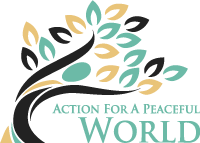During the Action Circle Cycle “Political Compass”, guided by Alex Weissenfels, the participants learned about the four key concepts (fundamental liabilities, trade-offs, political compass and virtues) and how they can be applied to better understand the perspectives of ourselves and each other in the service of facilitating effective communication and collaborative problem-solving.
Members can earn a total of 8 CEUs by viewing the video for the gathering and responding to the questions related to the specific objectives for each component of the Action Circle Process.
Gathering 1: Setting Intentions (2 CEUs) 1. Describe behavioral principles related to the process of “Setting Intentions” to establish the questions to be addressed for the cycle. 2. Describe the social significance of “Setting Intentions” as the first step before engaging in conversations related to complex social challenges. 3. Reflect upon the potential application of this process to your life.
Gathering 2: Exploring Possibilities (2.5 CEUs) 1. Describe behavioral principles related to the process of “Exploring Possibilities” in relation to the questions established for the cycle. 2. Describe the social significance of “Exploring Possibilities” as the second step of engaging in conversations related to complex social challenges. 3. Reflect upon the potential application of this process to your life.
Gathering 3: Making Decision (2 CEUs) 1. Describe behavioral principles related to the process of “Making Decisions” to identify specific actions to effect change. 2. Describe the social significance of “Making Decisions” as the third step of engaging in conversations related to complex social challenges. 3. Reflect upon the potential application of this process to your life.
Gathering 4: Taking Action (1.5 CEUs) 1. Describe behavioral principles related to the process of “Taking Action” to commit to actions on the individual and collective level. 2. Describe the social significance of “Taking Action” as the final step of engaging in conversations related to complex social challenges. 3. Reflect upon the potential application of this process to your life.
Below is a description of the concepts discussed during these action circles:
Four Fundamental Liabilities:
- Scarcity (material obstacles we’re already aware of; an intrinsic part of conscious existence; represents stability);
- Disaster (unknown or unpredictable problems; we know it may be possible, but can’t predict; the flip side of discovery – if the unknown didn’t exist, learning would never happen);
- Stagnation (known Barriers and obstacles in our own mind that prevent us from pursuing our goals; interferes with our ability to work toward long-term interests; when identity gets in the way);
- Conflict (unpredictable obstacles in motivations and goals; intERpersonal or intRApersonal; so many competing contingencies; manifestation of choice; don’t know in advance what goals we will pursue in the future).
Alex explained that these liabilities have two responses most people choose to take: an under-regulated response and an over-regulated response. The choice depends on the risks you’re willing to take.
- Scarcity: Under-regulated = wastefulness – treat as if we don’t care; over-regulated = austerity – hoard our resources and forgo any benefit
- Disaster: under-regulated = negligence – fail to anticipate – run into obstacles headfirst; over-regulated = susceptibility – avoid the unexpected – hide from disaster – ill-equipped when disaster inevitably occurs.
- Stagnation: Under-regulated = decadence – do whatever we want, whenever we want – give into addictions – lose willpower and self-control; over-regulated = dogma – imprison minds in a theoretically safe place – may not be able to grow as people – stuck
- Conflict: Under-regulated = turmoil – use violence to get way – oppress – free for all; over-regulated = corruption – impose rules to prevent turmoil – rules become weapons – deception – secret deals – systematically turned against the weakest among us – subversive
Political Compass:
- Progressive (reject status quo; help the most number of people; fear susceptibility and austerity; use more resources, take more risks; progress, improvement, innovations; creative, research-based).
- Conservative (accept status quo; change may make things worse; fear wastefulness and negligence; unwilling to make changes; cautionary approach)
- Libertarian (allow individuals to do what they judge to be best for them; reject rules and restrictions that impact personal freedom; fear dogma and corruption)
- Authoritarian (create the structure to protect systems; fear decadence and turmoil; coordination, cooperation, accountability, and solidarity)
The virtues provide us the ability to prevent or limit the impact of fundamental liabilities.
- Scarcity – Investment (not wastefulness and not austerity; spend more to get more back)
- Disaster – Preparation: use controlled setting to plan for and prepare for disasters; don’t need to know specific disaster will occur, but need to prepare, get experience, and learn to deal with unexpected. Prepare with physical resources and by practicing response.
- Stagnation – Transcendence: to avoid decadence and dogma, we develop discipline and understanding to deliberately resist doing things we want to do that may be counterproductive to our end goal or objectives.
- Conflict – Ethics: to avoid turmoil and corruption, use ethics to determine what we all want and do what is best for society as a whole without damaging individuals; put in the extra effort so people can do what they want to do without being oppressed by force or restrictive rules; get what we want by working together.
Read Alex’s article for a deeper dive into these concepts.
Course Content
About Instructor

